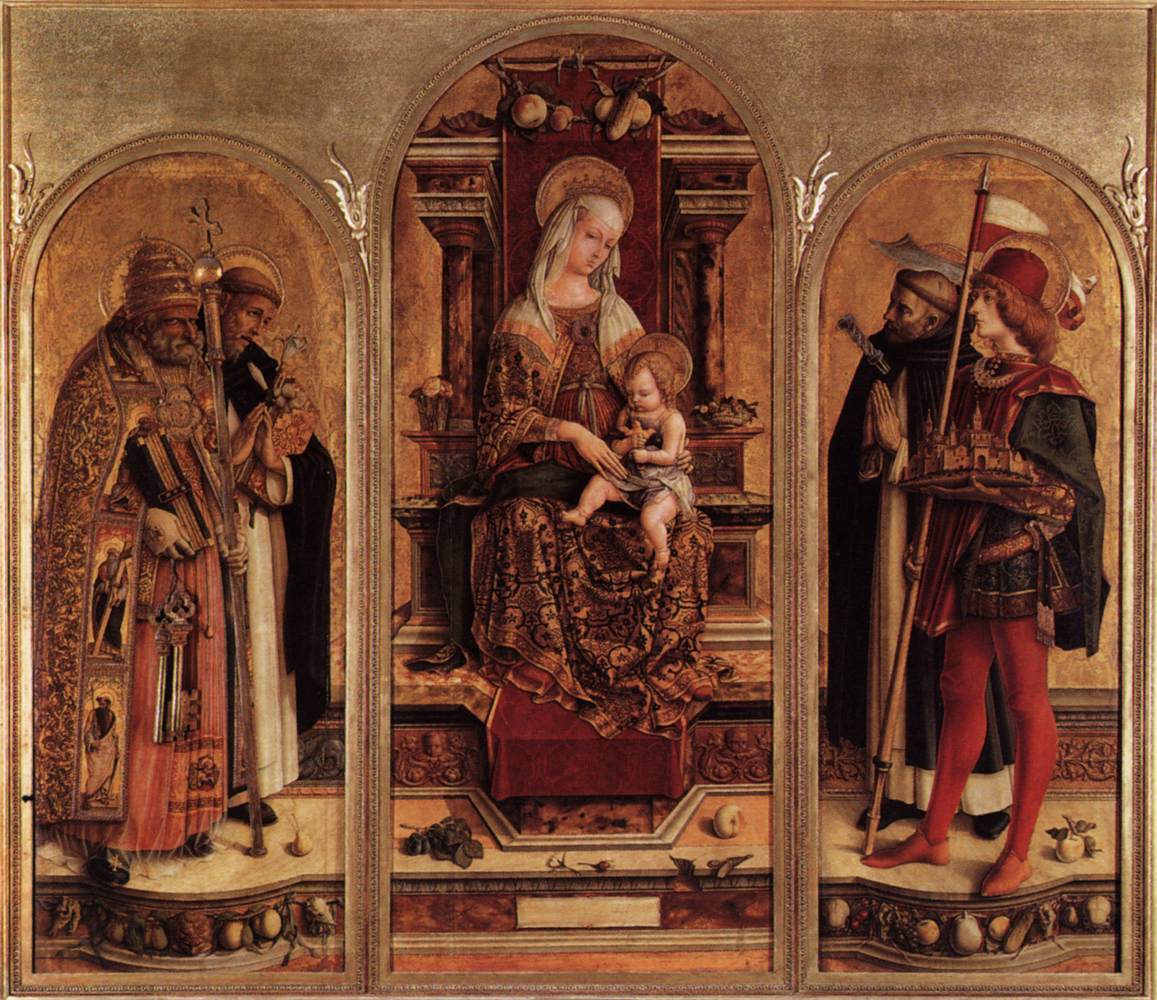Description
The Triptych of Camerino, painted by Carlo Crivelli in the 15th century, is a work of art that stands out for its artistic style and impressive composition. The painting is a triptych, which means that it is made up of three panels, with the central panel being the largest of the three. The original size of the painting is 170 x 198 cm, making it an imposing and majestic work.
Carlo Crivelli's artistic style is characterized by his attention to detail and his ability to create a sense of depth and realism in his works. In the Triptych of Camerino, this can be seen in the way that Crivelli has painted each of the characters and objects in the painting. Every detail, from clothing and accessories to facial expressions and gestures, is carefully rendered.
The composition of the painting is also impressive. The central panel presents the Virgin Mary and the Child Jesus seated on a throne, surrounded by angels and saints. The side panels show Saint Peter and Saint Paul, each with their own background decorated with scenes from the life of Christ. The way the panels are arranged creates a sense of continuity and movement throughout the painting.
Color is another highlight of the Triptych of Camerino. Bright, vibrant shades of blue, red, gold, and green combine to create a feeling of richness and opulence in the painting. Gold and silver details add even more shine and depth to the work.
The story behind the Triptych of Camerino is fascinating. The painting was commissioned by the Varano family, who ruled the city of Camerino at the time it was created. It is believed that the painting was used in religious ceremonies and processions in the city.
As for little-known aspects, Carlo Crivelli is known to have used unconventional painting techniques on the Triptych of Camerino. For example, he is said to have used a mixture of egg and oil to create a smoother, more even surface on the painting.
In short, the Triptych of Camerino is an impressive work of art that stands out for its artistic style, composition, color, and rich history. It is a display of Carlo Crivelli's talent and skill, and remains a work of art that impresses and captivates viewers to this day.

